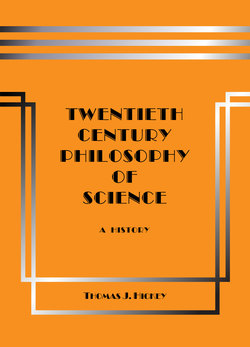Читать книгу Twentieth-Century Philosophy of Science: A History (Third Edition) - Thomas J. Hickey - Страница 94
На сайте Литреса книга снята с продажи.
4.14 Scientific Criticism
ОглавлениеCriticism pertains to the criteria for the acceptance or rejection of theories.
The only criterion for scientific criticism that is acknowledged by the contemporary pragmatist is the empirical criterion.
The philosophical literature on scientific criticism has little to say about the specifics of experimental design. Most often philosophical discussion of criticism pertains to the criteria for acceptance or rejection of theories and more recently to the decidability of empirical testing.
In earlier times when the natural sciences were called “natural philosophy” and social sciences were called “moral philosophy”, nonempirical criteria operated as criteria for the criticism and acceptance of descriptive narratives. Even today some philosophers and scientists have used their semantical and ontological preconceptions as criteria for the criticism of scientific theories including preconceptions about causality or specific causal factors. Such semantical and ontological preconceptions have misled them to reject new empirically superior theories. In his Against Method Feyerabend noted that the ontological preconceptions used to criticize new theories have often been the semantical and ontological claims expressed by previously accepted theories.
But what historically has separated the empirical sciences from their origins in natural and moral philosophy is the empirical criterion, which is responsible for the advancement of science and for its enabling practicality in application. Whenever in the history of science there has been a conflict between the empirical criterion and any nonempirical criteria for the evaluation of new theories, it is eventually the empirical criterion that ultimately decides theory selection.
Contemporary pragmatists accept scientific realism, relativized semantics and thus ontological relativity, and they therefore reject all prior semantical or ontological criteria for scientific criticism including the romantics’ mentalistic ontology requiring social-psychological reductionism.
